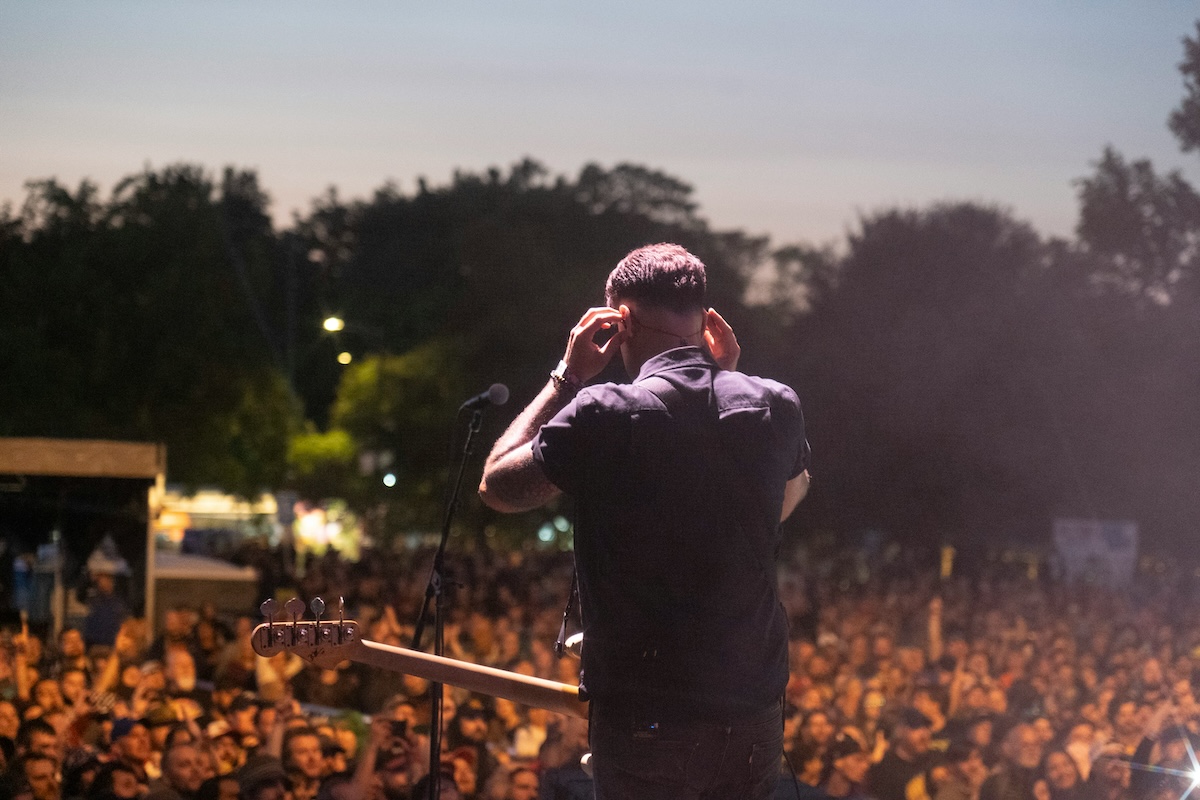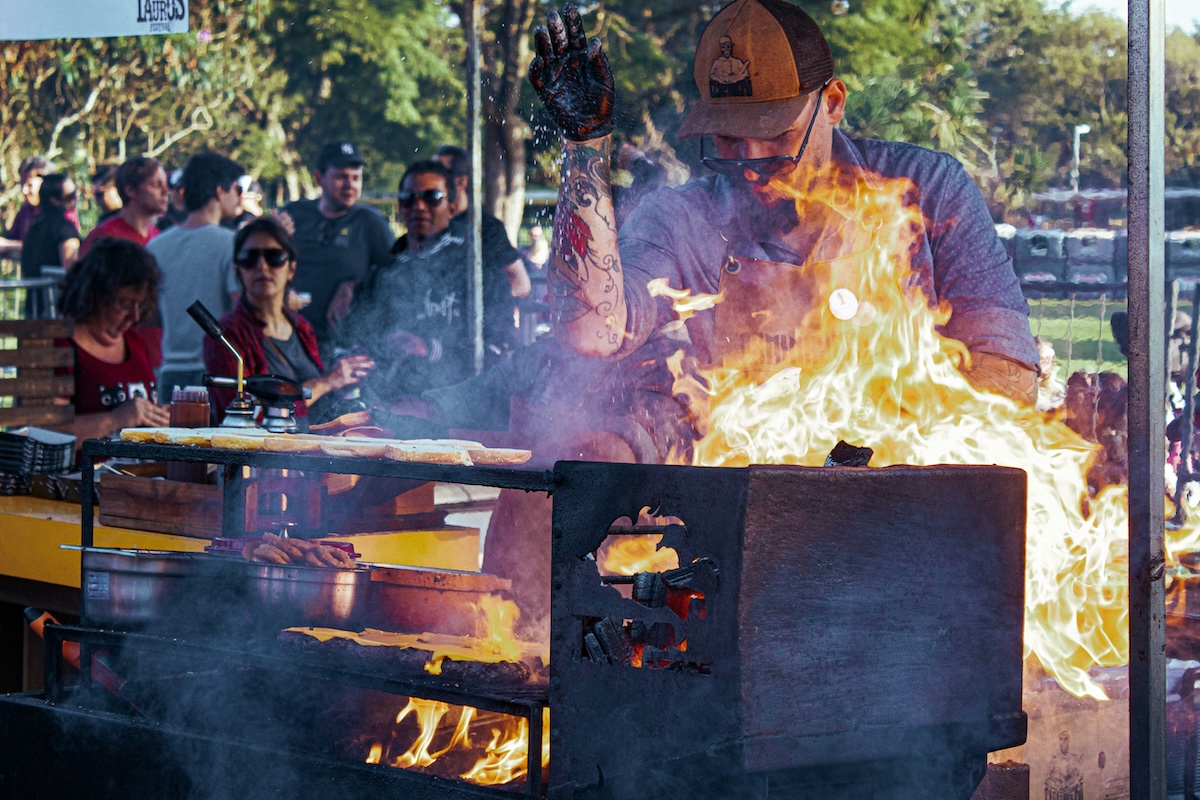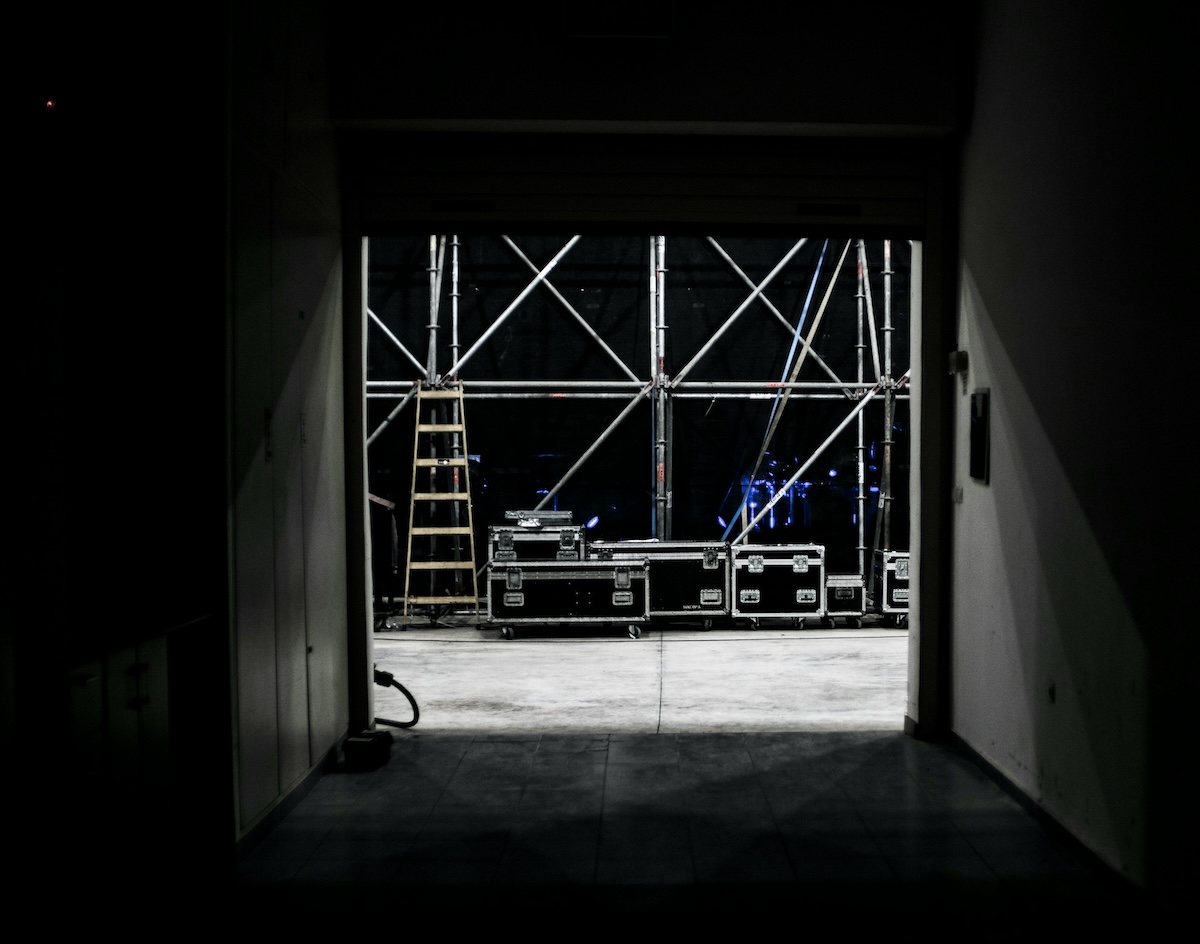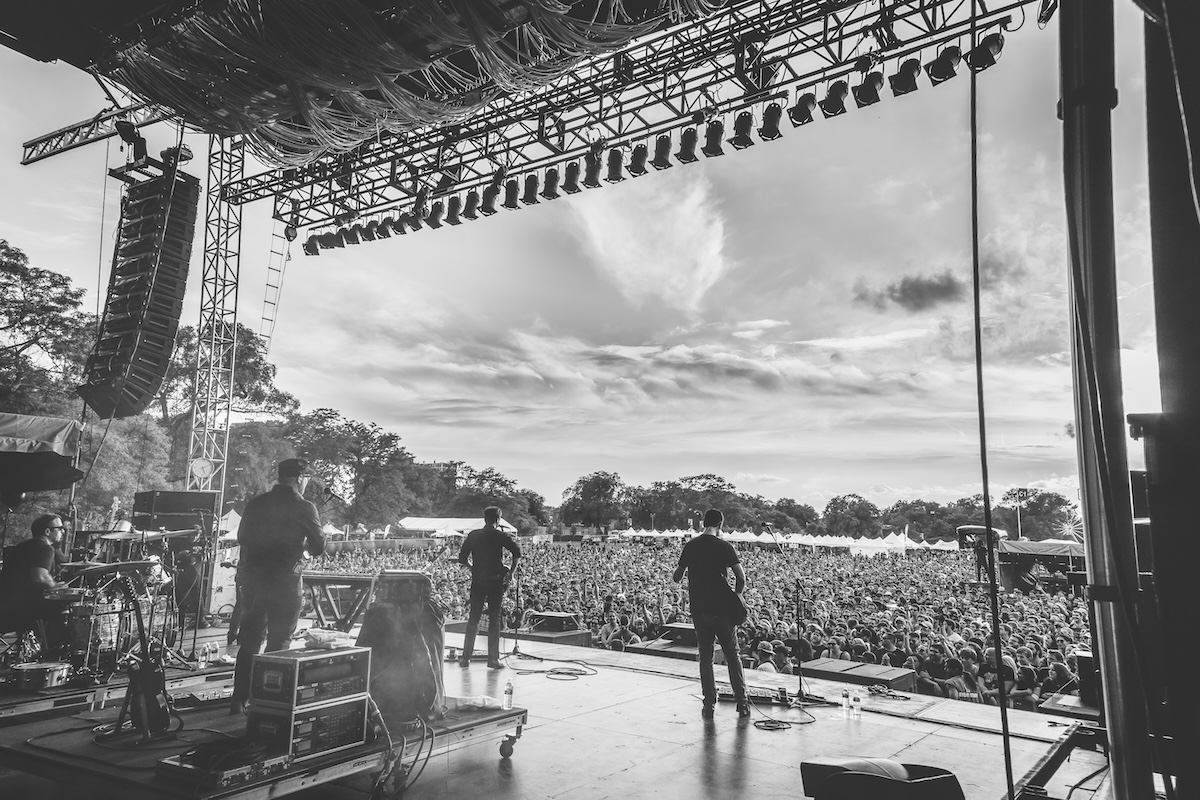Your Festival Production Timeline Template
Whether it’s a free community event or a large multi-day music festival, creating a festival production timeline is crucial to ensure a successful event. Here's a detailed timeline that covers the key stages from initial planning to post-event activities.
Find out when is the perfect time to get started with festival planning in this related blog article.
You can also download your FREE festival production timeline template here, or by clicking the button at the bottom of this page.
12-18 Months Before the Festival
Concept and Planning
- Define the festival's vision, theme, target audience and goals.
- Research and select potential dates (look out for clashes with other events in your region).
- Create a budget outline (be realistic - over-budgeting and under-spending is the best case scenario).
- Form the core team and assign roles (look for experience in festivals).
- Set reasonable break-even scenarios and ticket price ranges based on your budget (have a look at your competitors’ pricing).
Venue and Permits
- Research and book the venue/location (be on the lookout for good access and reliable people).
- Apply for necessary permits and licenses (this can take time, so be prepared to wait).
- Start discussions with local authorities and emergency services.
Sponsorship and Partnerships
- Identify potential sponsors and partners (look for people that align with your brand).
- Prepare sponsorship packages and proposals.
- Reach out to potential sponsors (always consider using a sponsorship agency with experience in this field to assist with this).
Start looking for talent
- Outline your budget for talent.
- Contact agents well in advance and be willing to make early offers.
- Be realistic about who you want to book.
9-12 Months Before the Festival
Marketing and Promotion
- Develop a marketing and promotion plan and budget.
- Design festival branding and logos.
- Start social media campaigns and website development (focus on dates and earlybird tickets).
Ticketing strategy
- Research ticketing providers (consider allocating tickets with multiple providers).
- Set up a pricing and sales strategy (tiered pricing is very common for festivals).
- Release early bird tickets (consider a small allocation at a very good price to stimulate interest and help cashflow).
- If you’re producing a free event, develop a registration process for attendees.
Programming and Line-up
- Outline the schedule of events and activities (be prepared to be flexible based on talent’s availability).
- Start making offers and booking talent (remember to plan travel and accommodation for artists well in advance).
Vendor and Contractor Engagement
- Identify and reach out to vendors (food, merchandise, etc.).
- Select production companies for stages, sound, and lighting.
6-9 Months Before the Festival
Logistics and Operations
- Plan site layout and infrastructure needs.
- Arrange for security, medical, and sanitation services.
- Book accommodation and transport for artists and staff.
3-6 Months Before the Festival
Public announcement and ticket sales launch
- Announce the festival line-up (remember to coordinate with agents, ticketing providers, partners and sponsors for maximum effectiveness).
- Launch main ticket sales.
- Intensify social media and online marketing.
- Launch the PR campaign (consider a PR consultancy for this).
- Distribute flyers, posters and physical marketing materials.
Detailed Planning
- Finalize event schedule and program.
- Conduct site visits and finalize layouts.
- Confirm all vendors, suppliers, and contractors.
Volunteer recruitment
- Open registration for volunteers.
- Plan key roles and responsibilities for volunteers.
1-3 Months Before the Festival
Operational Readiness
- Hold regular production team meetings to review progress.
- Finalize security and emergency plans.
- Conduct training sessions for staff and volunteers.
Announcements and marketing
- Launch further lineup announcements (doing this in waves helps spike ticket sales, especially when timed around paydays).
- Organize PR push and media engagements.
- Depending on ticket sales, consider increasing ticket price or running a special offer.
1 Month Before the Festival
Final Preparations
- Confirm all bookings and contracts.
- Advance artists and talent (set deadlines for information from agents and tour managers).
- Push those final ticket sales (don’t worry about getting to a sell out before the event, you can always sell more on the door).
- Perform final checks on logistics and infrastructure (don’t forget a rigorous health and safety protocol).
- Finalise volunteers and crew.
- Order wristbands and passes.
1-3 Weeks Before the Festival
On-site Setup
- Begin on-site setup (stages, tents, booths, etc.).
- Test all equipment (sound, lights, AV).
- Ensure security measures are in place.
- Set up accreditation offices.
Last-Minute Coordination
- Final walkthrough with production team and key stakeholders.
- Distribute final schedules and key contact lists.
Festival Day(s)
Event Management
- Ensure key personnel and equipment are on site for example, crew, artists, backline etc. (having accreditation offices are crucial for this).
- Implement the event schedule (delays are inevitable, so be prepared).
- Monitor and address any issues promptly.
- Ensure clear communication among all team members.
- Work closely with security to ensure a secure event.
Logistics
- Keep close contact with the local authorities to stay on top of traffic delays.
- Ensure contingencies are in place for important things like power and water.
- Ensure health and safety protocol is adhered to.
Attendee Engagement
- Provide excellent customer service.
- Manage social media updates and live coverage.
Post-Festival (1-2 Weeks After)
Breakdown and Cleanup
- Oversee site cleanup and breakdown.
- Ensure all vendors and contractors are paid.
Evaluation and Reporting
- Conduct debrief meetings with the team.
- Gather feedback from attendees, crew, volunteers and partners.
- Analyze data and prepare a final report.
Thank Yous and Follow-ups
- Send thank you notes to sponsors, volunteers, and partners.
- Maintain engagement with the community for future events.
- Launch early bird ticket sales for next year’s event.
This timeline is designed to be flexible and should be fine-tuned and adjusted based on the size and nature of your festival. Remember, regular reviews and adjustments are crucial to address any emerging challenges and opportunities. Happy festival planning!



